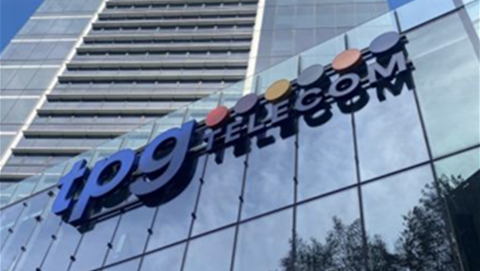NBN Co saw a one dollar lift in average revenue per residential user in the last six months of 2021, as Covid-related concessions eased and customers took up higher speed services.
The company saw its residential average revenue per user (ARPU) move from $45 to $46.
It had been “flat at $45 across the two previous fiscal years… because of considerable Covid support” that the company provided, mostly in the form of foregone excess charges for excess bandwidth usage, CEO Stephen Rue said.
Rue also said that “the uplift in residential ARPU was driven by increased customer demand for broadband including upgrade to higher speed tier plans.”
The six-month period coincided with an end to ‘focus on fast’, a marketing campaign that was intended to get users to trial higher speed services for free, before being presented a formal upgrade offer.
Conversion rates on the campaign have been under scrutiny in recent months, with ACCC data and some retailers suggesting that few customers treated to free upgrades to 250Mbps or higher plans had agreed to pay once the promotional period ended.
Chief customer officer Brad Whitcomb said that NBN Co had been “quite pleased with the performance of the campaign”.
However, he said that the most pleasing aspect of ‘focus on fast’ was a largely unpublicised migration of customers from 12Mbps and 25Mbps up to 50Mbps.
“[Focus on fast] was really designed to move customers across the board,” Whitcomb said.
“I think one of the areas that we got a lot of publicity around was the incentive to move customers up to the 250Mbps [tier] or all the way up to the near gigabit service, and we certainly did see some retailers drive those sorts of plans and we saw customers move up there.
“At the same time, part of the focus on fast [campaign] was moving customers up off of the 12Mbps and 25Mbps [tiers] and onto 50Mbps.
“If we were to characterise the retention rate, I’d say it’s been higher among the customers that moved up from the 12 and 25 onto the 50, than it would have been from customers going from 50 all the way up to 250, but across the board we have seen strong retention.
“So we saw a net increase in the speed tier mix as a result of focus on fast. it was definitely a good undertaking.”
Whitcomb said that NBN Co would work with retailers to optimise short-term upgrade campaigns in the future.
The company launched another discount scheme this week to continue to vacate the 12Mbps tier, which it is once more trying to reposition for voice only.
Copper overbuild
NBN Co said it remained on schedule to open up orders for so-called “on-demand” upgrades from fibre-to-the-node (FTTN) and fibre-to-the-curb (FTTC) to full fibre late next month.
It is currently performing business readiness testing with up to 525 customers; the exact number is unknown and the company did not address it in the results briefing.
Whitcomb said that the company had looked at “all the different use cases - or as many as we can work out in a small scale test” as part of the trials.
He also said that retailer support for the upgrade program had been “quite strong” but did not name the retailers involved.
Flat-pricing expansion
Though he did not mention names, Rue addressed calls made by Aussie Broadband to expand proposed wholesale flat pricing to the 50Mbps tier, instead of limiting it to 100Mbps services and above.
NBN Co is currently in a long-running pricing consultation that is likely to see its controversial variable bandwidth construct and charge - called connectivity virtual circuit - scrapped for some plans, to be replaced with a single flat wholesale charge.
This would make NBN services much simpler to manage and less prone to cost overruns and margin squeeze.
But NBN Co is only proposing flat rate prices on services 100Mbps and above, which represents just 20 percent of its user base.
Rue acknowledged the calls to expand flat-rate pricing but he backed what NBN Co currently has on the table.
“We know that some internet retailers would like to go further and deeper with our AVC-only wholesale pricing,” he said.
“We are doing our best to strike the right balance between our entry- and mid-tier wholesale products without pricing lower data demand users out of the market.
“For entry-level and mid speed tiers we suggest the retention of AVC/CVC bundles but we will propose a reduction of our regulated prices to align more closely with effective market prices.”
Commonwealth loan
NBN Co said it raised another $5.6 billion in bank and capital markets debt during the half.
It repaid another $5.8 billion of its Commonwealth loan, reducing the outstanding balance to $7.4 billion.



.png&h=140&w=231&c=1&s=0)

.jpg&h=140&w=231&c=1&s=0)




















